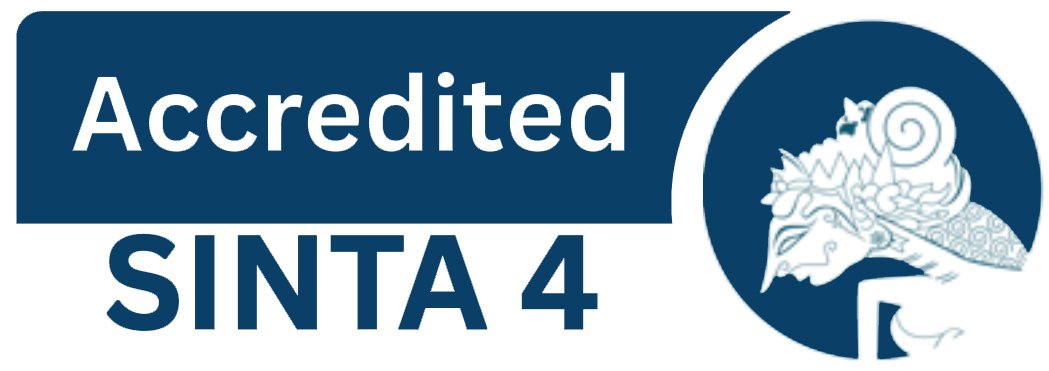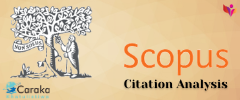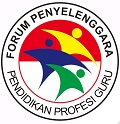Application of Humanistic Theory Assisted by Deep Learning in Science Learning Grade 4 SDN 108/1 Sungai Rumbai
DOI:
https://doi.org/10.22460/jpp.v4i1.27433Keywords:
Deep Learning, Science Learning, Humanistic Learning TheoryAbstract
This study investigates the integration of humanistic learning theory with a deep learning approach in science education for fourth-grade students at SDN 108/1 Sungai Rumbai. We used a descriptive qualitative method and purposive sampling to select 14 students who actively participated in science learning. The research utilized validated instruments, including observation sheets, questionnaires, and student reflection notes, with a validity score ≥ 0.80 and reliability (Cronbach’s Alpha) of 0.85. Data were analyzed thematically for qualitative aspects and using descriptive statistics and the Wilcoxon test for quantitative learning outcomes. Findings indicate significant improvements in student engagement, understanding of concepts, and emotional expression. Learning activities, supported by Canva and Wordwall, fostered interactive and joyful learning environments. Students demonstrated increased focus, confidence, and the ability to relate science material to personal experiences. Before the intervention, only 68% of students met learning targets, whereas after the implementation, 91.7% achieved satisfactory outcomes. Despite limitations in sample size and duration, the study emphasizes the promise of combining psychological theory and digital tools to improve science learning outcomes. This integration offers a promising model for 21st-century learning that is mindful, meaningful, and emotionally engaging.
References
Al Ghozali, A., & Fatmawati, N. (2021). Pendidikan humanistik dan pengaruhnya terhadap dinamika kelas. Yogyakarta: Pustaka Pelajar.
Amini, F., Kelana, J. B., & Mugara, R. (2024). Pengembangan bahan ajar materi interaksi
sosial berbasis model pembelajaran kooperatif tipe stad. Jurnal Profesi
Pendidikan, 3(1), 38-52
Effendi, M., & Wahidy, A. (2019). Penggunaan media digital dalam pembelajaran interaktif. Jurnal Teknologi Pendidikan, 21(2), 123-134.
Fahrunnisa, F., & Fisa, V. F. (2024). Pengaruh teori humanistik terhadap motivasi belajar siswa sd. Jurnal Ilmu Pendidikan Dasar, 9(1), 44–52.
Fullan, M. (2014). The principal: three keys to maximizing impact. San Francisco: Jossey-Bass.
Fullan, M. (2018). Deep learning: engage the world, change the world. Corwin Press.
Hidayat, T., & Kosasih, A. (2019). Analisis peraturan menteri pendidikan dan kebudayaan republik indonesia nomor 22 tahun 2016 tentang standar proses pendidikan dasar dan menengah serta implikasinya dalam pembelajaran pai di sekolah. Muróbbî: Jurnal Ilmu Pendidikan, 3(1), 45-69.
Insani, N. W., Putri, M. R., & Rahmawati, T. (2019). Pendekatan humanistik dalam meningkatkan kualitas pendidikan dasar. Jurnal Pendidikan Humaniora, 7(3), 212-220.
Khotimah, D. K., & Abdan, M. R. (2025). Analisis pendekatan deep learning untuk meningkatkan efektivitas pembelajaran pai di SMKN Pringkuku. Jurnal Pendidikan dan Pembelajaran Indonesia (JPPI), 5(2), 866-879.
Luckin, R., Holmes, W., Griffiths, M., & Forcier, L. B. (2016). Intelligence unleashed: an argument for ai in education. Pearson Education.
Muis, A. A. (2013). Prinsip-prinsip belajar dan pembelajaran. Istiqra: Jurnal Pendidikan dan Pemikiran Islam, 1(1).
Perni, N. N. (2018). Penerapan teori belajar humanistik dalam pembelajaran. Adi Widya: Jurnal Pendidikan Dasar, 3(2), 105-113.
Prasetyo, R., & Suciptaningsih, O. A. (2022). Penerapan Teori Belajar Humanistik Pada Pembelajaran Berdiferensiasi Di Sekolah Dasar. Jurnal ilmiah global education, 3(2), 233-237.
Qodri, Abd. (2017). Teori pembelajaran humanistik dalam meningkatkan prestasi belajar siswa. Abd. Jurnal Pedagogi, 04(02), 188–202.
Raup, A., Ridwan, W., Khoeriyah, Y., Supiana, S., & Zaqiah, Q. Y. (2022). Deep learning dan penerapannya dalam pembelajaran. JIIP-Jurnal Ilmiah Ilmu Pendidikan, 5(9), 3258-3267.
Rogers, C. R. (1969). Freedom to Learn: A View of What Education Might Become. Columbus, OH: Charles Merrill Publishing Company.
Saputri, S. (2022). Humanisasi dalam Pendidikan Dasar. Dalam Al Ghozali & Fatmawati (Ed.), Pendidikan Holistik di Abad 21 (hlm. 71–83). Jakarta: Prenada Media.
Siregar, V. V., Suyadi, S., & purnama Putri, R. D. (2021). Penerapan humanistik melalui non verbal reinforcement ditinjau dari percaya diri siswa dalam pembelajaran. Mimbar PGSD Undiksha, 9(1), 56-63.
Solissa, E. M., Rakhmawati, E., Maulinda, R., Syamsuri, S., & Putri, I. D. A. (2024). Analisis implementasi metode pembelajaran berbasis proyek dalam meningkatkan prestasi belajar di sekolah dasar. Al-Madrasah: Jurnal Ilmiah Pendidikan Madrasah Ibtidaiyah, 8(2), 558-570.
Sulistyowati, A., & Wulandari, E. (2020). Pembelajaran joyful learning dan dampaknya terhadap keterlibatan siswa. Jurnal Psikologi Pendidikan, 15(1), 34–47.
Syifaâ, R. (2008). Psikologi humanistik dan aplikasinya dalam pendidikan. El-Tarbawi, 1(1), 99-114.
Downloads
Published
How to Cite
Issue
Section
License
Copyright (c) 2025 Mira Astria, Ryan Dwi Puspita

This work is licensed under a Creative Commons Attribution-ShareAlike 4.0 International License.
Authors who publish with the Journal Pendidikan Profesi (JPP) agree to the following terms:
- Authors retain copyright and grant the journal the right of first publication with the work simultaneously licensed under a Creative Commons Attribution License (CC BY-SA 4.0) that allows others to share the work with an acknowledgment of the work's authorship and initial publication in this journal.
- Authors are able to enter into separate, additional contractual arrangements for the non-exclusive distribution of the journal's published version of the work (e.g., post it to an institutional repository or publish it in a book), with an acknowledgment of its initial publication in this journal.
- Authors are permitted and encouraged to post their work online (e.g., in institutional repositories or on their website) prior to and during the submission process, as it can lead to productive exchanges, as well as earlier and greater citation of published work. (See The Effect of Open Access)
Similar Articles
- Oky Prayogi, Ryan Dwi Puspita, Implementation of Constructivism-Based Game-Based Learning Model in Science Learning for Grade IV , Jurnal Profesi Pendidikan: Vol. 4 No. 1 (2025): June
- Yanuar Rafindo, Puspa Dianti, Laili Linda Hartati, Application of ICT-Based Problem Based Learning Method as a Learning Innovation for Pancasila Education to Improve Learning Outcomes of Class VII D Students of SMPN 51 Palembang , Jurnal Profesi Pendidikan: Vol. 4 No. 1 (2025): June
- Kamilia Salsabila, Susanti Sufyadi, Agus Hadi Utama, Systematic Literature Review: The Utilization of the Edutainment Learning Model on Students’ Learning Motivation , Jurnal Profesi Pendidikan: Vol. 4 No. 1 (2025): June
- Izzah Millati, Agustina Tyas Asri Hardini, Improving the Cooperation Attitude of Grade V Students Through the Application of Problem-Based Learning Model in Pancasila Education Subjects , Jurnal Profesi Pendidikan: Vol. 4 No. 1 (2025): June
- Ade Nira Susilawati, Jajang Bayu Kelana, Muhammad Ghiyats Ristiana, The Use of STEM (Science, Technology, Engineering, and Mathematics) Models to Improve Elementary School Science Concept Understanding , Jurnal Profesi Pendidikan: Vol. 4 No. 1 (2025): June
- Julia Julia, Umi Chotimah, Tyas Masito Mutiara, Enhancing Learning Motivation of Grade XI.9 Students Through Zep Quiz Media in Civics Education at SMA Negeri 3 Palembang , Jurnal Profesi Pendidikan: Vol. 4 No. 1 (2025): June
- Enur Nurmawati, Meningkatkan Motivasi dan Hasil Belajar Matematika Peserta Didik Kelas VII Melalui Penerapan Model Pembelajaran Problem Based Learning , Jurnal Profesi Pendidikan: Vol. 3 No. 1 (2024): June
- Nuraini Nuraini, Camellia Camellia, Maimun Maimun, The Implementation of Culturally Responsive Teaching (CRT) Approach to Improve Learning Outcomes and Learning Motivation of Grade XI.3 Students at SMA Negeri 1 Palembang , Jurnal Profesi Pendidikan: Vol. 4 No. 1 (2025): June
- Luviani Sri Rezeki, Trisna Nugraha, Penggunaan Model Project Based Learning Berbasis Socio Scientific Issues untuk Meningkatkan Kemampuan Berpikir Kreatif Siswa Kelas IV Sekolah Dasar , Jurnal Profesi Pendidikan: Vol. 3 No. 2 (2024): December
- Kurnia Akbar, Citadewi Aditya, Lathifah Rizki, Nelly Ade Karisma, Selvi Novitasari, Widya Sulistia, Yulianti Yulianti, Penerapan Model Problem Based Learning Berbantuan Komik Digital untuk Meningkatkan Pemahaman Konsep Matematis Siswa pada Materi Perkalian Pecahan di Kelas V Sekolah Dasar , Jurnal Profesi Pendidikan: Vol. 3 No. 2 (2024): December
You may also start an advanced similarity search for this article.
















